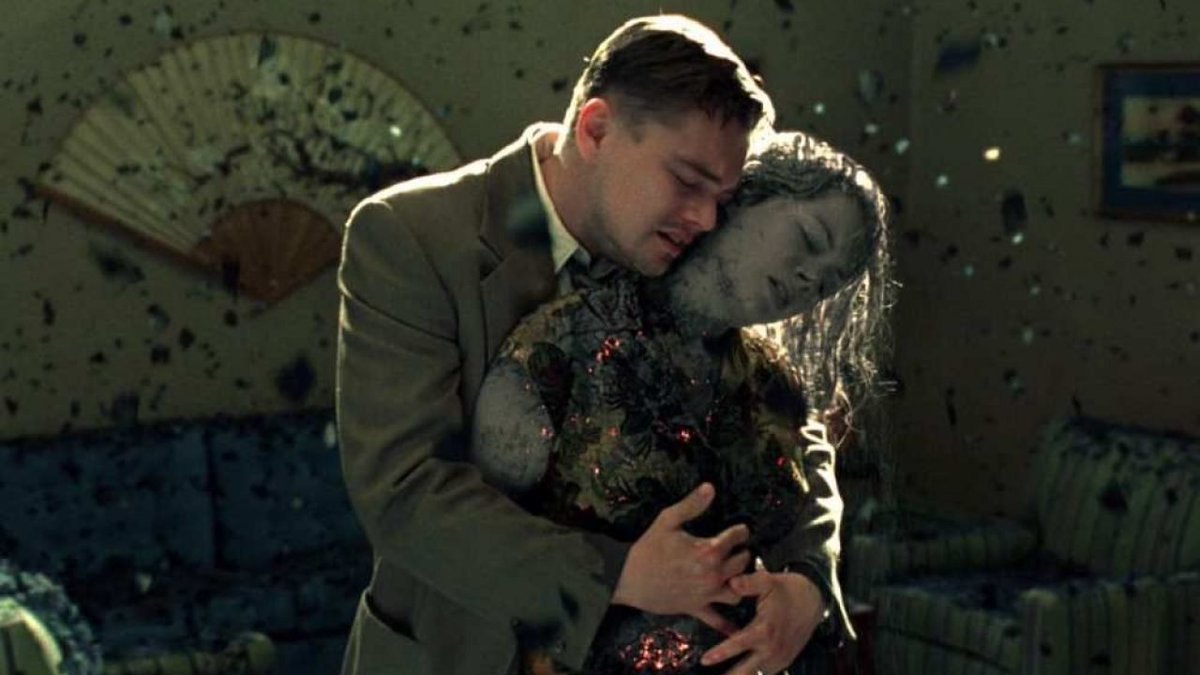Shutter Island (2010)

Shutter Island (2010), directed by Martin Scorsese, is a psychological thriller that delves into themes of identity, sanity, and the nature of reality. Adapted from Dennis Lehane’s novel of the same name, the film stars Leonardo DiCaprio as Teddy Daniels, a U.S. Marshal investigating the mysterious disappearance of a patient from a mental institution. This essay explores the character of Teddy Daniels, the film’s exploration of psychological and thematic complexities, and the broader implications of its narrative twists.
The plot of Shutter Island unfolds in 1954 when U.S. Marshal Teddy Daniels (Leonardo DiCaprio) and his partner Chuck Aule (Mark Ruffalo) are dispatched to the remote Shutter Island, home to the Ashecliffe Hospital for the Criminally Insane. They are called to investigate the disappearance of Rachel Solando, a patient who vanished from her locked cell. As the investigation progresses, Daniels uncovers unsettling truths about the institution, its staff, and the island itself.
As Daniels delves deeper into the case, he becomes increasingly disturbed by the island’s mysterious atmosphere and the enigmatic behavior of its inhabitants. His investigation leads him to question the nature of his own reality and sanity, culminating in a series of shocking revelations that challenge the boundaries between truth and illusion.

Teddy Daniels is a deeply complex character whose psychological journey drives the narrative of Shutter Island. Introduced as a determined and emotionally scarred U.S. Marshal, Daniels is haunted by the trauma of his past, particularly his experiences in World War II and the death of his wife, Dolores (Michelle Williams). His personal demons and unresolved grief significantly impact his perceptions and judgments throughout the film.
The character of Teddy Daniels is meticulously crafted to embody the themes of confusion, paranoia, and the search for truth. As the investigation unfolds, Daniels’s behavior becomes increasingly erratic, revealing the internal struggles that plague him. His obsession with uncovering the truth about the institution and its practices is intertwined with his personal quest for justice and closure regarding his wife’s death.
One of the central themes of Shutter Island is the exploration of identity and the nature of reality. The film’s narrative structure creates a labyrinthine sense of uncertainty, mirroring Daniels’s psychological turmoil. The island itself, with its eerie isolation and enigmatic atmosphere, serves as a physical manifestation of Daniels’s fractured state of mind.

The film delves into the concept of duality, as evidenced by the contrasting realities presented throughout the story. The distinction between truth and illusion is blurred, forcing both Daniels and the audience to grapple with the reliability of perception and the nature of sanity. This thematic exploration is underscored by the film’s plot twists, which challenge the viewer’s assumptions and reveal deeper layers of complexity.
Psychological trauma plays a crucial role in shaping Teddy Daniels’s character and driving the narrative of Shutter Island. His experiences as a soldier in World War II, coupled with the loss of his wife, have left him emotionally scarred and vulnerable. The film uses Daniels’s trauma to explore themes of grief, guilt, and the impact of past experiences on one’s sense of reality.
Daniels’s interactions with other characters, including the enigmatic Dr. John Cawley (Ben Kingsley) and the mysterious patient George Noyce (Jackie Earle Haley), further illuminate the effects of his psychological state. The tension between Daniels’s internal struggles and the external challenges of the investigation adds depth to his character and heightens the film’s suspense.

The narrative structure of Shutter Island is integral to its psychological impact. The film employs a non-linear approach, with flashbacks and hallucinations contributing to the sense of disorientation experienced by Daniels. This structure enhances the suspense and mystery, as the audience is drawn into Daniels’s subjective experience of reality.
The film’s plot twists, particularly the revelation of Daniels’s true identity and the nature of the investigation, are pivotal to its thematic depth. The climax of the film challenges the viewer’s understanding of the entire narrative, revealing that Daniels is actually Andrew Laeddis, a patient at Ashecliffe Hospital who has been living in a delusional fantasy as part of an elaborate role-playing therapy.
Shutter Island also raises ethical and moral questions regarding the treatment of mental illness and the use of psychological manipulation. The film critiques the use of extreme measures in psychiatric treatment and the moral implications of manipulating patients for experimental purposes. The ethical dilemmas faced by the characters, particularly in relation to the institution’s practices, reflect broader concerns about the treatment of individuals with mental health issues.

The film’s portrayal of Ashecliffe Hospital and its methods underscores the tension between medical ethics and the pursuit of scientific knowledge. The revelation that the institution engages in unethical practices adds a layer of moral complexity to the story and prompts reflection on the nature of authority and accountability.
Shutter Island (2010) is a masterful exploration of psychological complexity, identity, and reality. Through the character of Teddy Daniels, Martin Scorsese crafts a compelling narrative that challenges the viewer’s perceptions and delves into the depths of human trauma and moral ambiguity. The film’s innovative narrative structure, thematic depth, and thought-provoking plot twists make it a significant contribution to the genre of psychological thrillers. By examining the interplay between truth and illusion, Shutter Island invites viewers to confront their own understanding of reality and the nature of the human psyche.











